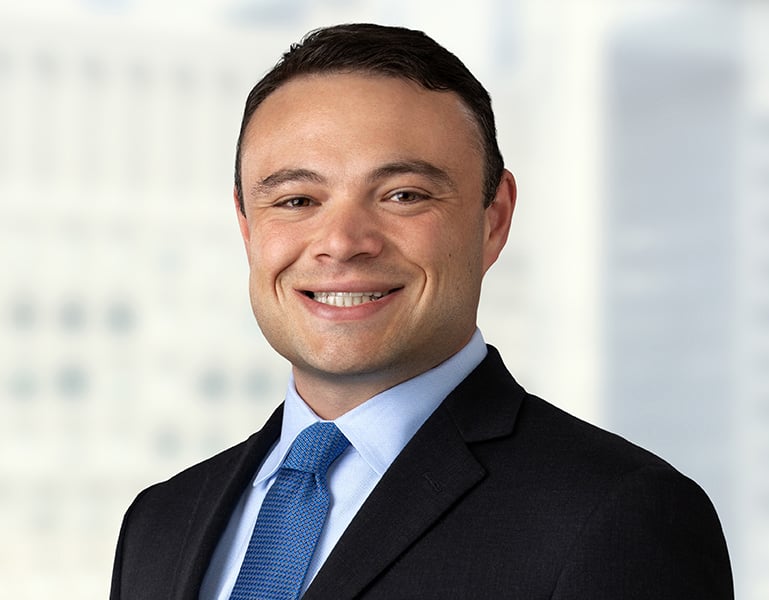SEC Set to Approve ETF Share Class Exemptive Relief
On September 29, 2025, the SEC issued a notice of an amended application for an exemptive order to permit the applicant open-end management investment companies registered under the Investment Company Act of 1940 to offer a class of shares that operates as an exchange-traded fund and one or more classes of shares that operate as a mutual fund. The notice indicated that the SEC may grant the requested exemptive order as early as October 16, 2025, which represents a shorter period for public review of an application compared to the usual 25 day notice period. However, due to the U.S. government shutdown that was in effect from October 1, 2025 through November 12, 2025, the exemptive order has yet to be issued.
The amended application sets forth nine conditions that must be met in order for the applicants to rely on the requested exemptive order. These conditions are intended to address, among other matters, the SEC’s concerns regarding the potential for cross-subsidization between ETF and mutual fund share classes due to (i) brokerage and other costs associated with buying and selling portfolio securities in response to mutual fund share class inflows and outflows; (ii) cash drag associated with holding the cash necessary to satisfy mutual fund share class redemptions; and (iii) distributable capital gains associated with portfolio transactions. The conditions include the following requirements:
- an ETF share class must be operated as an “exchange-traded fund” in compliance with the requirements of Rule 6c 11 under the Investment Company Act and the dual ETF/mutual fund class fund must be operated in compliance with Rule 18f-3 under the Investment Company Act (subject to certain exceptions); the fund’s board, including a majority of the independent directors, must find initially, and then annually thereafter, that the multiple class plan pursuant to Rule 18f-3 is in the best interests of each mutual fund class and the ETF class individually and of the dual class fund as a whole;
- the fund’s investment adviser must prepare and deliver to the fund’s board an “Initial Adviser Report” that discusses the reasonably expected benefits and costs of the dual class structure to each class individually and the fund as a whole, how the investment adviser intends to manage the reasonably expected costs associated with the transition to a dual class structure, the appropriateness of the fund’s investment strategy for the dual class structure, and any other potential material conflicts of interest, including sources of potential cross-subsidization, identified by the investment adviser;
- the investment adviser must recommend for the fund board’s approval an “Ongoing Monitoring Process” designed to help determine whether a dual class fund has encountered any issues relating to the dual class structure, including any conflicts between the mutual fund class(es) and the ETF class;
- the investment adviser must prepare and deliver to the fund’s board an “Ongoing Adviser Report” that discusses any benefits or cost savings to the dual class fund resulting from the dual class structure, material conflicts of interest between the ETF class and the mutual fund class(es), or material negative consequences to any share class resulting from the dual class structure, and any other information that the board requests; and
- certain disclosure and recordkeeping requirements.
Numerous fund groups and their investment advisers across the industry have filed similar applications for ETF share class relief, and in conjunction with the September 29, 2025 notice the SEC staff requested that other applicants conform and re-file their exemptive relief applications to be consistent with the amended application that was the subject of the SEC notice. The SEC staff indicated that applications that are “substantially identical,” as defined by Rule 0-5(d)(2) under the Investment Company Act, would be reviewed on an expedited basis, subject to the additional requirements of Rule 0-5.
The SEC’s September 29, 2025 notice of the amended application is available here.
Vedder Thinking | Articles SEC Set to Approve ETF Share Class Exemptive Relief
Article
November 14, 2025
On September 29, 2025, the SEC issued a notice of an amended application for an exemptive order to permit the applicant open-end management investment companies registered under the Investment Company Act of 1940 to offer a class of shares that operates as an exchange-traded fund and one or more classes of shares that operate as a mutual fund. The notice indicated that the SEC may grant the requested exemptive order as early as October 16, 2025, which represents a shorter period for public review of an application compared to the usual 25 day notice period. However, due to the U.S. government shutdown that was in effect from October 1, 2025 through November 12, 2025, the exemptive order has yet to be issued.
The amended application sets forth nine conditions that must be met in order for the applicants to rely on the requested exemptive order. These conditions are intended to address, among other matters, the SEC’s concerns regarding the potential for cross-subsidization between ETF and mutual fund share classes due to (i) brokerage and other costs associated with buying and selling portfolio securities in response to mutual fund share class inflows and outflows; (ii) cash drag associated with holding the cash necessary to satisfy mutual fund share class redemptions; and (iii) distributable capital gains associated with portfolio transactions. The conditions include the following requirements:
- an ETF share class must be operated as an “exchange-traded fund” in compliance with the requirements of Rule 6c 11 under the Investment Company Act and the dual ETF/mutual fund class fund must be operated in compliance with Rule 18f-3 under the Investment Company Act (subject to certain exceptions); the fund’s board, including a majority of the independent directors, must find initially, and then annually thereafter, that the multiple class plan pursuant to Rule 18f-3 is in the best interests of each mutual fund class and the ETF class individually and of the dual class fund as a whole;
- the fund’s investment adviser must prepare and deliver to the fund’s board an “Initial Adviser Report” that discusses the reasonably expected benefits and costs of the dual class structure to each class individually and the fund as a whole, how the investment adviser intends to manage the reasonably expected costs associated with the transition to a dual class structure, the appropriateness of the fund’s investment strategy for the dual class structure, and any other potential material conflicts of interest, including sources of potential cross-subsidization, identified by the investment adviser;
- the investment adviser must recommend for the fund board’s approval an “Ongoing Monitoring Process” designed to help determine whether a dual class fund has encountered any issues relating to the dual class structure, including any conflicts between the mutual fund class(es) and the ETF class;
- the investment adviser must prepare and deliver to the fund’s board an “Ongoing Adviser Report” that discusses any benefits or cost savings to the dual class fund resulting from the dual class structure, material conflicts of interest between the ETF class and the mutual fund class(es), or material negative consequences to any share class resulting from the dual class structure, and any other information that the board requests; and
- certain disclosure and recordkeeping requirements.
Numerous fund groups and their investment advisers across the industry have filed similar applications for ETF share class relief, and in conjunction with the September 29, 2025 notice the SEC staff requested that other applicants conform and re-file their exemptive relief applications to be consistent with the amended application that was the subject of the SEC notice. The SEC staff indicated that applications that are “substantially identical,” as defined by Rule 0-5(d)(2) under the Investment Company Act, would be reviewed on an expedited basis, subject to the additional requirements of Rule 0-5.
The SEC’s September 29, 2025 notice of the amended application is available here.
Professionals
-
Services




